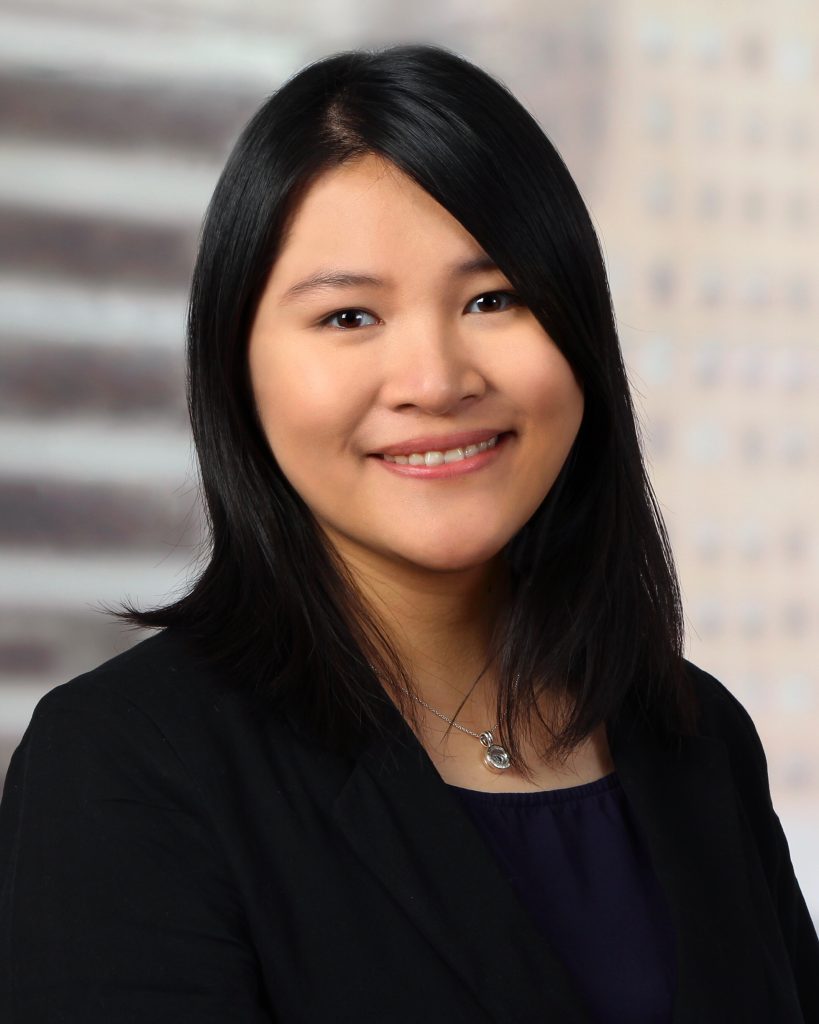When Pauline Liang, ’17, came to Binghamton University her freshman year, she was determined to get a master’s degree in mathematics in order to become an actuary. Now, three years after she graduated from BU, Liang finds herself on a completely different path — pursuing research in economics.
Liang is a Binghamton University graduate to win the National Science Foundation (NSF) Graduate Research Fellowship Program (GRFP). The NSF GRFP is a highly competitive program which aims to recognize an early graduate whose research interests lie in science, technology, engineering and mathematics (STEM) fields. She will be participating in the fellowship as she pursues a postgraduate doctoral degree at Stanford University’s Graduate School of Business with a focus on financial economics.
As a first-generation, low-income college student, Liang found herself struggling, but found support at Student Support Services (SSS), which provided her academic advising, counseling and a second home. She credits her undergraduate success in part to SSS.
“I would say it’s very hard for a first-generation student to get into academia,” Liang said. “There’s a lot for me to learn, but as a first-generation student, a lot of stuff that you are not used to and is not the normal in your family is very hard to pick up so I guess that’s the challenge for me right now. I think it’s getting a lot better.”
As she continued to push through barriers, Liang, who double-majored in economics and mathematics, began her lifelong pursuit toward research at BU under the mentorship of Plamen Nikolov, assistant professor of economics. After witnessing Liang in an undergraduate course called ECON 490: Research Seminar in Applied Economics, Nikolov said Liang’s potential was incredible to witness.
“It was pretty clear to me, after the course, that Pauline was a student with star potential,” Nikolov wrote. “She was an extremely impressive student with a strong quantitative background, a vast set of empirical tools and a very strong work ethic.”
After the course, Liang was invited by Nikolov when she was a junior to join his economic research lab in order to examine the role of scarcity in bad decision making. According to Nikolov, Liang was key to the success of the project.
“Pauline was central to the design and the execution of this experiment,” Nikolov wrote. “She effectively managed an army of almost 10 research assistants to work with study subjects who participated in the study, clean the data and subsequently analyze some of the data.”
In their preliminary results, the team found that people who have less time to make decisions usually show a reduction of cognitive capacity which result in more mistakes occurring. Nikolov went on to note that this experiment gave insight to why people in destitution often make “suboptimal decisions.”
With work like this, Liang says her passion for research grew and it created the path she takes today.
“We’re still working on it,” Liang said. “We finished the lab experiment but still working on the manual script. This was really my first exposure and it opened a new door for me so that I can do research.”
After graduating, Liang went on to work as a health care analytics Intern at McKinsey & Company. However, she found this work to be less fulfilling and after less than a year, she decided to work as a junior research scientist in New York University (NYU) Stern School of Business where her passion for research grew.
“I really loved doing research and missed doing it so much,” Liang said. “When I do research, I stay up till 2 a.m., reply to emails and work on big sets, doing analysis and I wanted to do it but when I was working in the industry [McKinsey & Company] I also stayed up till 2 a.m. not because I wanted to do it, but because my supervisor asked me to do it, so it was a totally different thing.”
As a research assistant at NYU, Liang reminisced at her time at BU under the wing of Nikolov’s research lab. Nikolov says he has seen many students like Liang be successful in the economics department. David Titus, ‘19, got accepted into a top Ph.D. economics program at Cornell University after engaging in undergraduate research at BU. Titus and Liang are some of the students that made a sharp impression during their time at BU, Nikolov wrote.
“Pauline is also a wonderful person and had become more of a colleague to me,” Nikolov wrote. “She is sharp, humble, incredibly helpful, generous and ambitious in all that she does. Despite her shyness, she radiates a special grace and refinement. Her ideas will, I predict, have far-reaching impact in the social sciences.”
Right now, Liang is excited to pursue financial economics at Stanford University this upcoming fall. She says she loves economics because it provides a multidisciplinary approach to research.
“For example, you talk about education policy and stuff like that and economists do a lot of research on education, but they think of it on a different way,” Liang said. “They look at it in a more quantitative way, so that’s why I think economics is very [interesting]. They’re trying to use a quantitative approach to expand some of the things that we have in society.”
With this approach, Liang hopes to one day be a professor. As she waits to step on Stanford University’s campus due to the coronavirus, Liang says she is excited for the opportunity to pursue research.
“I found my passion back,” Liang said.
Correction: The initial release of this article stated that Pauline Liang was the first BU student to win the NSFGRFP. However, other BU alumni have received the fellowship in years past. The article has been revised to correct this error.



